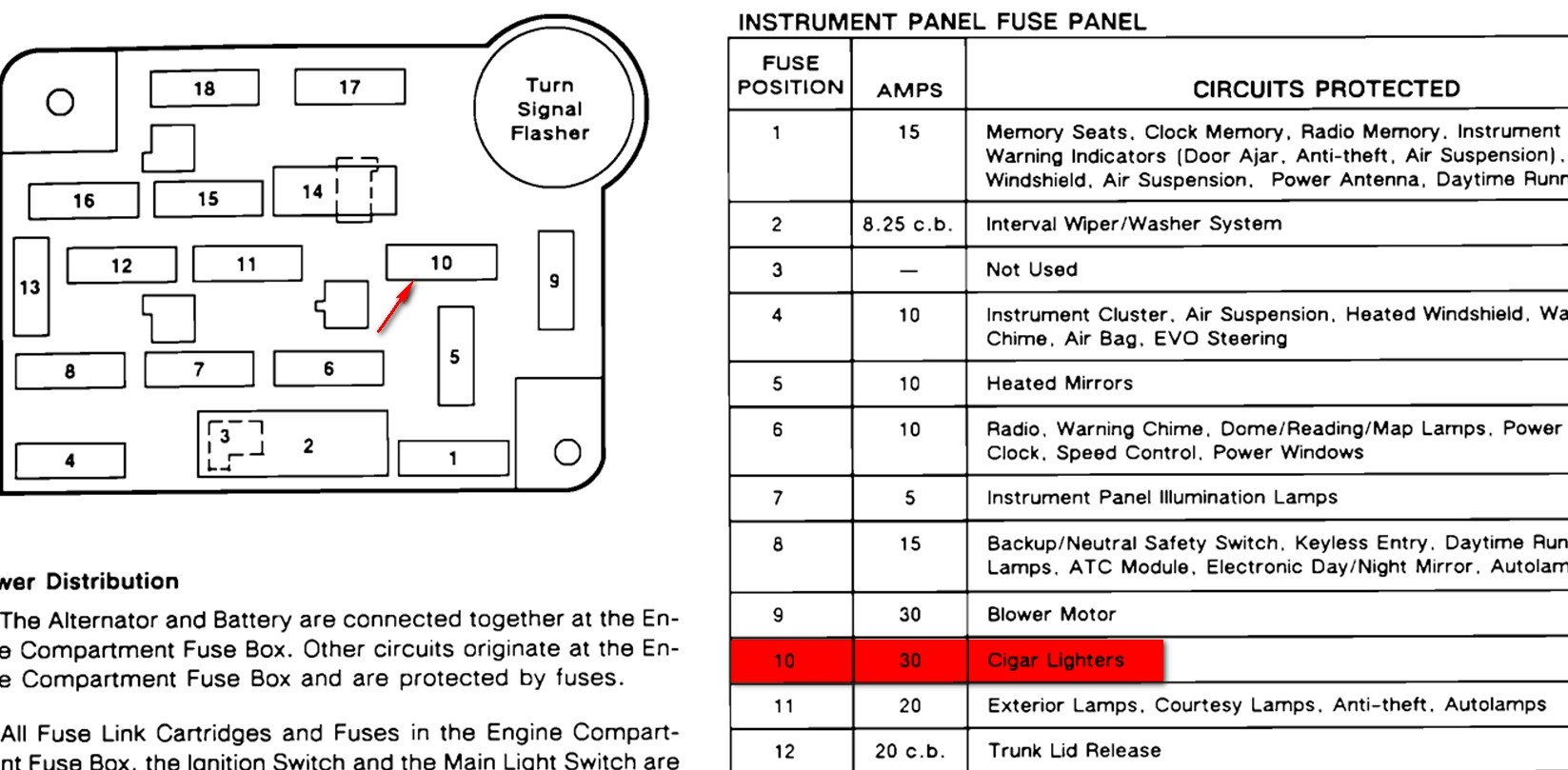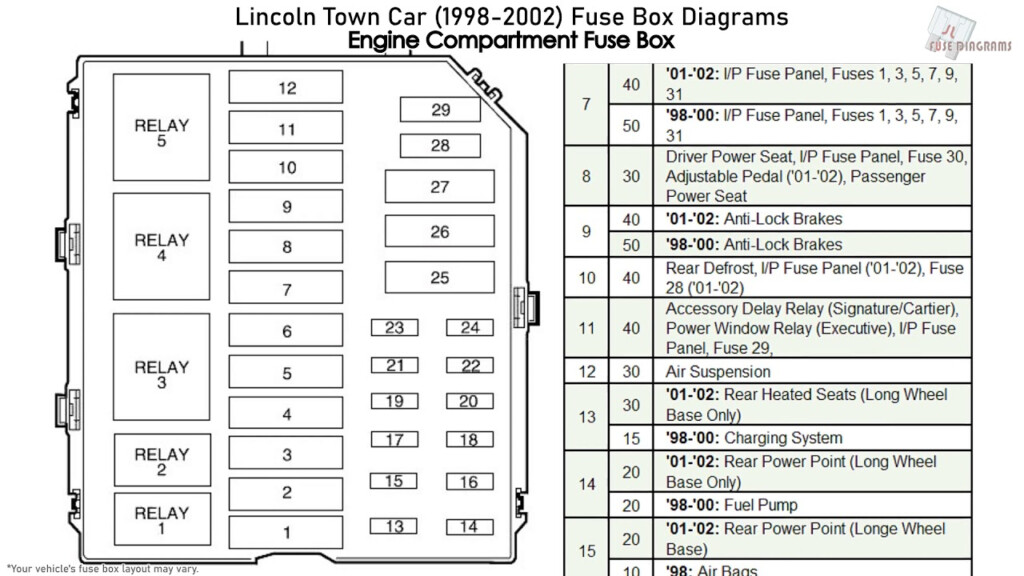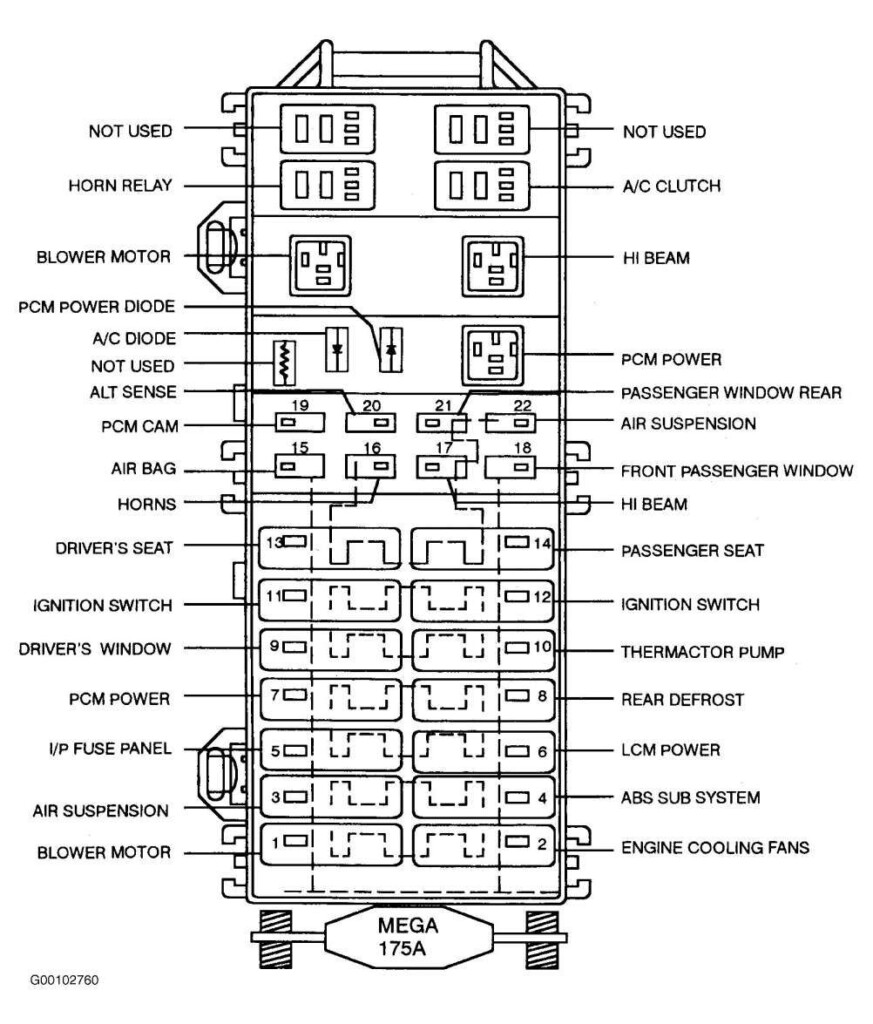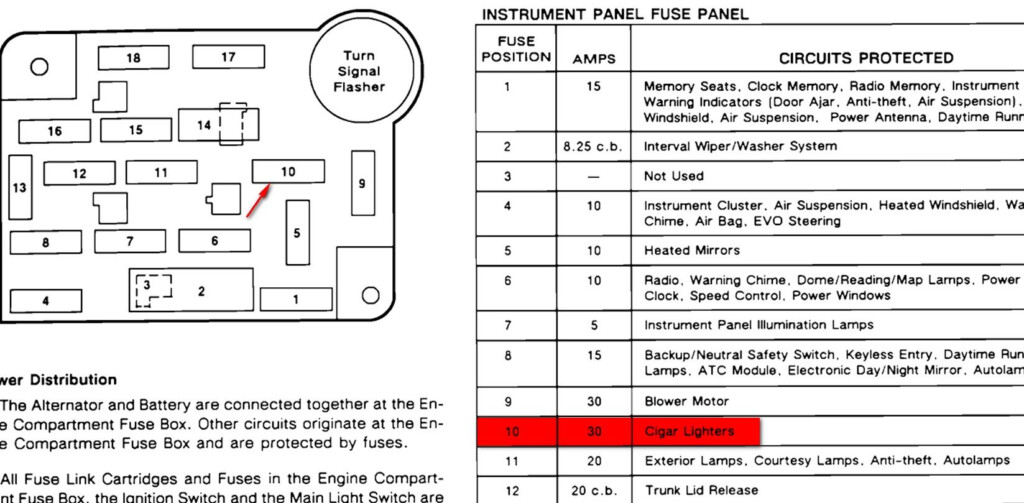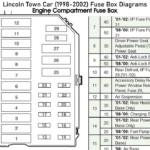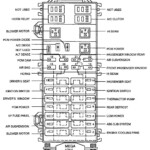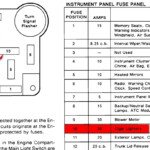Lincoln Town Car Fuse Box Diagram – Fuse box diagrams are essential tools for understanding and troubleshooting electrical systems at your home or vehicle. They show the circuit protection circuits and their function. This guide will help you to understand fuse box diagrams, which include symbols and common troubleshooting steps.
Types of Fuse Box Diagrams
A diagram of the fuse box is a crucial tool in the electrical and home repair projects.
You will find fuse box diagrams throughout a wide range of scenarios, including cars as well as residential structures. In this article, we’ll take a look at two of the most popular types:
A. A. The schematics can be located in the owner’s manual or on the label inside the fuse box.
C. Diagrams of Home Fuse Boxes – These diagrams are also known as house fuse boxes. They illustrate the arrangement of circuit breakers and fuses in an electrical system. They are typically found near or inside the panel’s doorway and are used to inform homeowners about their home.
Understanding Fuse Box Diagram Symbols
The symbols of fuse boxes are visual representations that show the different parts of an electrical system. The following icons are frequently employed:
- Fuses are small rectangles that have numbers inside, indicating the amperage of the fuse
- Circuit Breakers: A symbol resembling a switch that represents a safety device with a resettable
- Ground: This looks like an inverted T with the horizontal line representing the electrical ground connection
Troubleshooting Common Fuse Box Issues
If you experience electrical trouble, these steps may help to identify and fix the problem.
- Step 1: Recognize the Issue
First, you must determine what part of your car or house’s electrical system is not functioning properly. This could be a light or outlet at home or an auto feature like air conditioning or radio in your car.
- Step 2 – Locate the appropriate fuse
Find the circuit breaker, or fuse associated with the part that is failing by looking at the fuse box diagram. The components are identified by the description of the symbol or a number.
- Step 3: Check and replace the fuse:
You should carefully remove the fuse or disable the circuit breaker and examine the fuse for evidence of damage. If the fuse has been damaged or worn out replace it with one of a similar rating. You can verify that this device is functioning correctly by testing it.
Conclusion
The first step to troubleshooting electrical issues in your home or in vehicles is understanding fuse box diagrams. By following the steps laid out in this direction, you can quickly and effectively identify and repair common problems, ensuring your electrical systems remain functional and secure.
